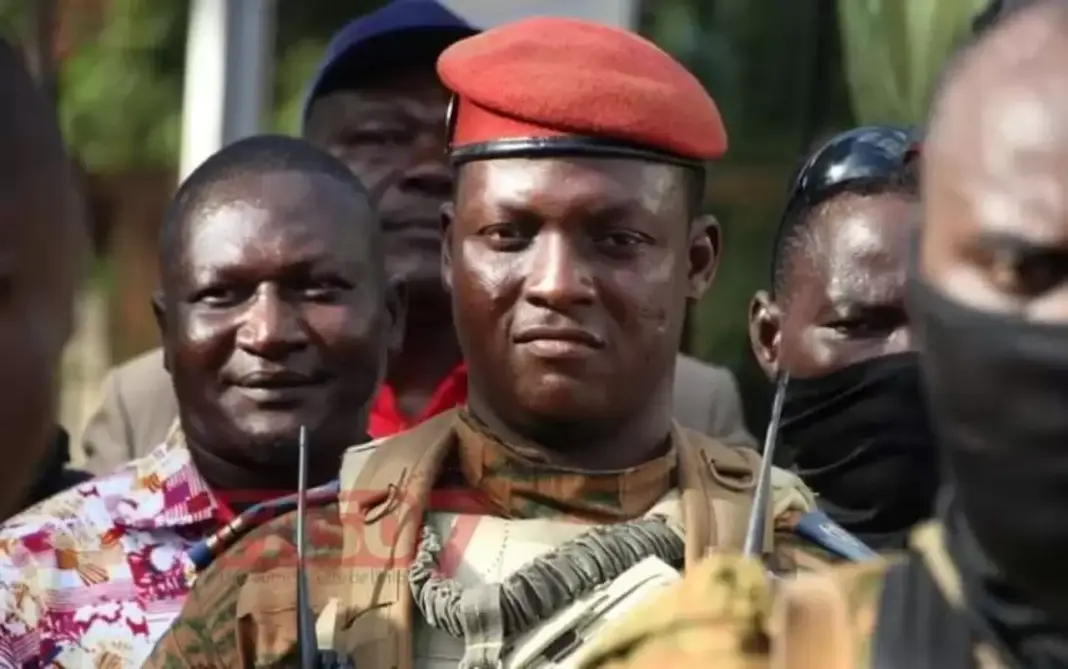In a charged and thought-provoking address during a recent state visit to Russia, Burkina Faso’s President, Captain Ibrahim Traoré, used his platform to deliver a passionate call for African sovereignty, scientific independence, and resistance against imperialism.
Speaking through a translator, Traoré reflected on the lessons learned during Russia’s celebration of the 80th anniversary of the victory over Nazism — an event he attended alongside other leaders. He described the occasion as a moment of deep reflection that reignited his drive to put Africa back on track.
“And today a lot of nations are fighting for their survival, sovereignty and peace,” Traoré said. “And the Sahel region is part of the area feeling heavy pressure and influence of imperialism.”
In what seemed like a bold critique of neocolonialism, the 36-year-old revolutionary leader paused to honour the memory of those who died resisting domination — drawing a clear line between the past and Africa’s current struggles.
“With all we are experiencing, I do hope we can honor the memory of all those people, soldiers who sacrificed their bodies and souls and advanced our struggle against imperialism and neocolonialism,” he declared, before calling for a moment of silence.
Traoré, a self-described lover of science and a trained soldier, took the opportunity to emphasize the importance of practical knowledge — especially in disciplines like chemistry and physics. Speaking at Dmitry Mendeleev University of Chemical Technology, he humorously recounted how classmates in Burkina Faso were nicknamed after scientists like Pavlov and Mendeleev, especially when they struggled to understand concepts.
“I personally enjoy science. I’m a scientist. One could wake me up at any time and I’d recite Mendeleev’s periodic table,” he shared. “The same goes for chemical equations… but we lack the laboratories to practice more.”
From there, the young leader launched into a powerful critique of Africa’s underutilization of its own resources and potential. Using cotton as an example — a major crop in Mali, Burkina Faso, and Niger — Traoré questioned why African countries aren’t processing it into gunpowder and explosives for self-defense purposes.
“Why can’t we do that? We don’t develop practical chemistry,” he asked. “We’re at war. We pay for equipment, ammunition, weapons… we should be producing them.”
He also mentioned Russia’s advanced missile systems, including the newly developed “Oreshnik” missile, pointing out that chemistry lies at the heart of such advancements — and urging African students to study and replicate these technologies.
“Can we learn how to create or develop a fuel, an engine for comparable missiles?” he asked, noting that knowledge alone is not enough if it cannot be put into practice.
Traoré encouraged African students in Russia to make the most of their time there, highlighting that they were at the “very heart of chemistry and mathematics” and surrounded by a scientific heritage Africa must now seek to build for itself.
He issued a warning for the future of weak nations in a world ruled by strength and power:
“If a country is weak, it is doomed to disappear in this world of predators. It must be strong. Nuclear powers are strong; they will never lose a war. We can tell you everything about the nuclear bomb — isotope, fission, energy release — but can we successfully put it into practice?”
Closing his powerful address, Traoré reminded students and leaders alike that original knowledge, not borrowed superiority, is what Africa must pursue.
“There should be original knowledge. As Mendeleev’s periodic table demonstrates — it summarizes the point. I encourage you to use this opportunity and learn in practice for our common benefit.”

